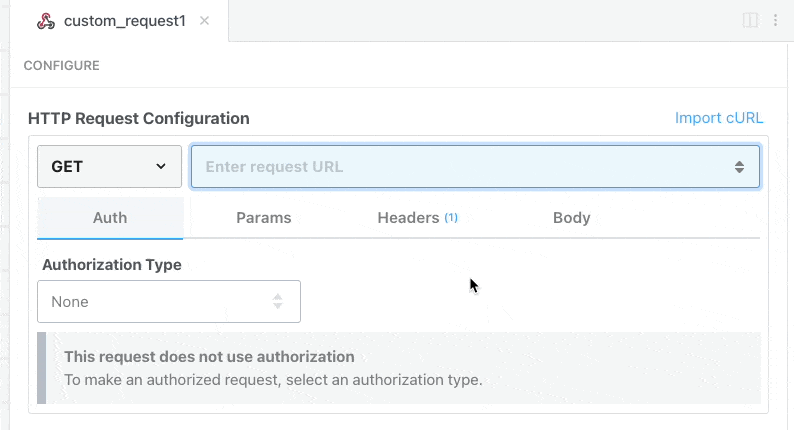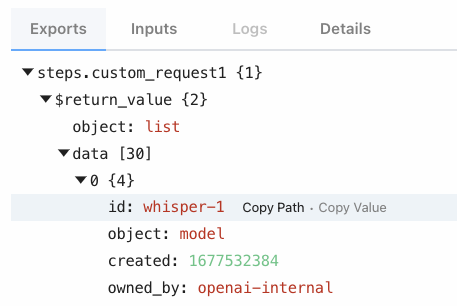What do you want to automate
with Cloud Convert and HTTP / Webhook?
Prompt, edit and deploy AI agents that connect to Cloud Convert, HTTP / Webhook and 3,000+ other apps in seconds.
Trusted by 1,000,000+ developers from startups to Fortune 500 companies
Popular Ways to Connect Cloud Convert with HTTP / Webhook#
Popular Cloud Convert and HTTP / Webhook Triggers#
Get a URL and emit the full HTTP event on every request (including headers and query parameters). You can also configure the HTTP response code, body, and more.
Get a URL and emit the HTTP body as an event on every request
Emit new event when a CloudConvert job has failed. See the documentation
Emit new event when the content of the URL changes.
Emit new event when a CloudConvert job has been completed. See the documentation
Popular Cloud Convert and HTTP / Webhook Actions#
Converts an input file to a specified output format using CloudConvert. See the documentation
Creates an archive in a specified format. See the documentation
Creates a task to import a file from a URL. See the documentation
Send an HTTP request using any method and URL. Optionally configure query string parameters, headers, and basic auth.
Overview of Cloud Convert#
The Cloud Convert API offers a robust solution for file conversion, supporting a vast array of file formats. With Pipedream, you can harness this versatility to create automated workflows that trigger file conversions, process the resulting files, and integrate with other services. By combining Cloud Convert with Pipedream's connectivity to 3,000+ apps, you can craft custom automation that saves time and removes the friction from multi-format file management tasks.
Connect Cloud Convert#
import { axios } from "@pipedream/platform"
export default defineComponent({
props: {
cloud_convert: {
type: "app",
app: "cloud_convert",
}
},
async run({steps, $}) {
return await axios($, {
url: `https://api.cloudconvert.com/v2/users/me`,
headers: {
Authorization: `Bearer ${this.cloud_convert.$auth.oauth_access_token}`,
},
})
},
})
Overview of HTTP / Webhook#
Build, test, and send HTTP requests without code using your Pipedream workflows. The HTTP / Webhook action is a tool to build HTTP requests with a Postman-like graphical interface.

Point and click HTTP requests
Define the target URL, HTTP verb, headers, query parameters, and payload body without writing custom code.

Focus on integrating, not authenticating
This action can also use your connected accounts with third-party APIs. Selecting an integrated app will automatically update the request’s headers to authenticate with the app properly, and even inject your token dynamically.

Pipedream integrates with thousands of APIs, but if you can’t find a Pipedream integration simply use Environment Variables in your request headers to authenticate with.
Compatible with no code actions or Node.js and Python
The HTTP/Webhook action exports HTTP response data for use in subsequent workflow steps, enabling easy data transformation, further API calls, database storage, and more.
Response data is available for both coded (Node.js, Python) and no-code steps within your workflow.

Connect HTTP / Webhook#
// To use any npm package on Pipedream, just import it
import axios from "axios"
export default defineComponent({
async run({ steps, $ }) {
const { data } = await axios({
method: "GET",
url: "https://pokeapi.co/api/v2/pokemon/charizard",
})
return data.species
},
})
Community Posts#

